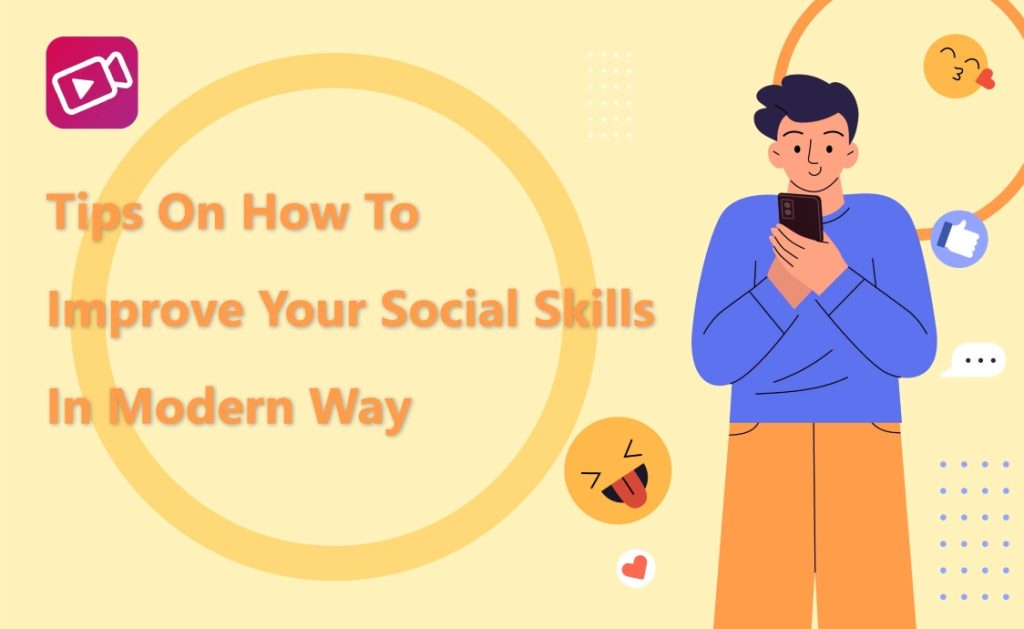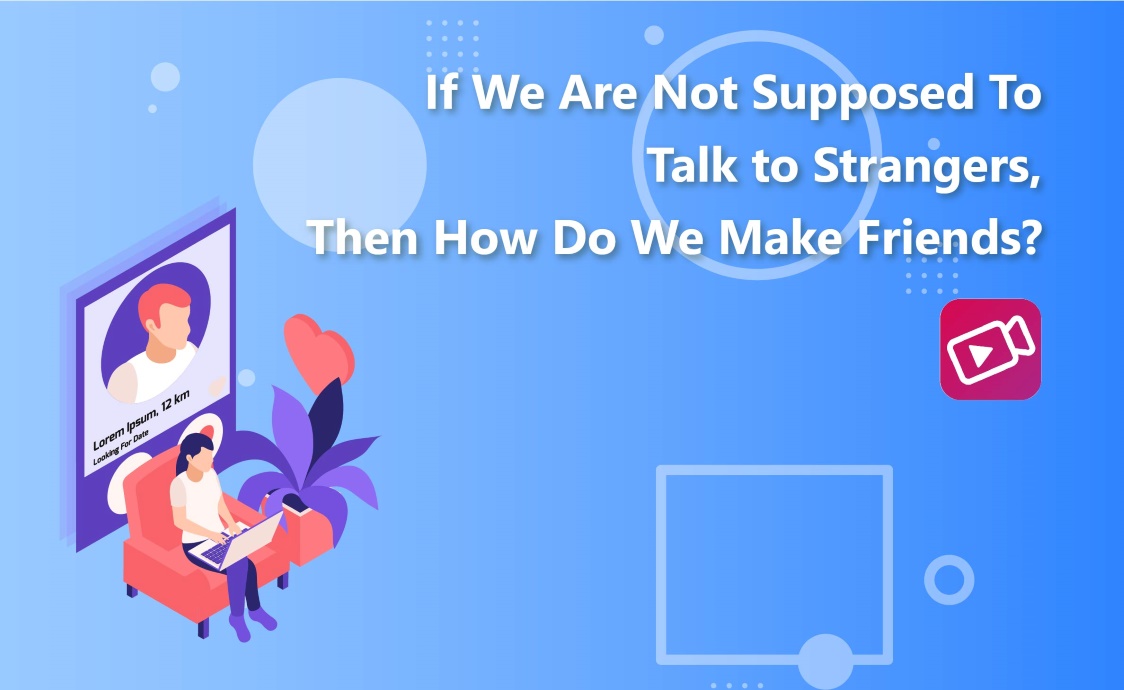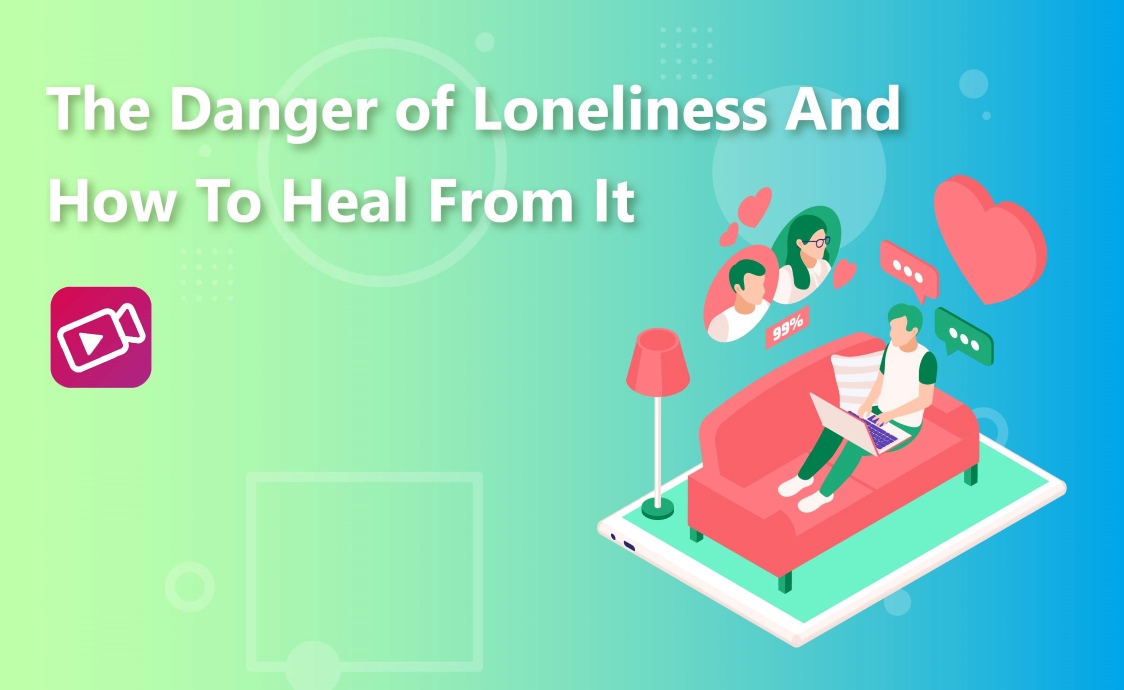Tips On How To Improve Your Social Skills In Modern Way

Improving social skills is an essential part of personal and professional growth. Whether you’re looking to excel in networking, deepen friendships, or communicate better in everyday life, enhancing these skills requires practice, patience, and self-awareness. In this guide, we’ll explore a descriptive approach to developing better social abilities, offering actionable tips and insights for people at any level of social competence. We will also discuss how video chat apps can play a role in helping you hone them.
1. Improve Social Skills: Start With Active Listening
One of the most important social skills is active listening. It’s more than just hearing what someone says – it’s about engaging with their words, understanding the message, and responding thoughtfully.
Imagine a conversation where one person speaks, but the other is fully present, making eye contact, nodding, and offering responses that reflect true understanding. This dynamic creates a powerful connection, fostering trust and openness.
To improve active listening, start by maintaining eye contact and offering verbal or non-verbal cues to show you’re engaged. Avoid distractions, like checking your hand or allowing your mind to wander. You can also paraphrase what the other person says to confirm that you understand, which helps deepen the interaction.
However, nowadys, video chat apps such as Fun Live Video Chat App, offer a unique environment where you can focus on both verbal and non-verbal cues, even when not physically present with the 1-on-1 video call features.
Through these platforms, you can practice active listening by making eye contact with the camera, nodding in response, and offering verbal affirmations like “I see” or “That makes sense.”
Because video chats require clear communication, they encourage you to speak thoughtfully and at a steady pace, ensuring that you’re understood despite potential technical delays. This is particularly useful for those working to improve clarity in speech and avoid talking too quickly or too quietly.
2. Improve Social Skills: Nonverbal Communication With Body Language
Your body language often speaks louder than words. Think of the subtle difference between crossing your arms versus having them relaxed at your sides during a conversation. The former may signal defensiveness or discomfort, while the latter portrays openness and warmth.
To improve nonverbal communication, be mindful of your posture, gestures, and facial expressions. Smiling, maintaining open body language, and mirroring the other person’s demeanor can create a sense of comfort and understanding. Practicing in front of a mirror or observing socially skilled individuals in action can help fine-tune your awareness of these cues.
While video chat may not capture every nuance of body language, it still allows you to work on facial expressions, gestures, and maintaining eye contact.
In a video call, subtle cues like a smile or a nod can go a long way in conveying engagement and warmth. Since you can see yourself during these interactions, video chats provide a unique feedback loop, allowing you to adjust your facial expressions or posture in real time.
This constant visual awareness helps build stronger nonverbal communication skills, which you can then apply in face-to-face interactions.
3. Improve Social Skills: Practices Empathy
Empathy is the ability to understand and share the feelings of another. It’s the difference between offering a sympathetic pat on the back and truly connecting with someone’s emotional state. Empathy allows you to respond to others in ways that make them feel seen and heard.
To build empathy, practice putting yourself in other people’s shoes. When someone shares their experience, ask yourself how you might feel in that situation and respond accordingly. Empathetic phrases like, “That sounds really tough,” or “I can imagine how happy that made you,” show that you are not only listening but truly understanding the emotional weight behind their words.
In video chats, paying attention to a person’s tone of voice, facial expressions, and word choices is essential to understanding their emotions.
Since apps like Fun Live Video Chat App simulate face-to-face contact, they help sharpen your empathy by encouraging you to read emotional cues without the full range of in-person body language.
Moreover, by participating in more conversations online, you get better at recognizing emotional states, which helps you respond appropriately and build deeper connections. This skill becomes increasingly vital as social skills improve, enhancing emotional intelligence in both virtual and in-person settings.
4. Improve Social Skills: Self-Awareness
Improving your social skills starts with understanding your own behavior in social settings. Do you dominate conversations, or do you often fade into the background? Are you comfortable initiating a conversation, or do you wait for others to take the lead?
Developing self-awareness helps you recognize patterns that may be holding you back. Reflect on past interactions, and think about moments where you felt particularly connected or disconnected from others. Journaling or even seeking feedback from friends can help uncover areas where you can grow.
5. Improve Social Skills: Be Confidence
Social interactions thrive on a balance of confidence and humility. A person who is too shy may struggle to engage with others, while someone overly confident may come across as arrogant. Finding the right balance involves practicing self-assured communication while remaining open to others’ perspectives.
Confidence can be built by preparing for social situations. Whether you’re attending a networking event or meeting new friends, think of a few topics or questions in advance.
This preparation reduces anxiety and allows you to focus on the quality of the conversation. Practice speaking clearly and maintaining good posture – even small improvements here can have a huge impact on how you’re perceived.
For individuals who find face-to-face conversations intimidating, video chat apps provide a less stressful environment to practice.
The virtual space offers more control over the interaction—if things feel overwhelming, you can take a moment to gather your thoughts or adjust the setting to make yourself more comfortable.
This controlled environment allows for gradual confidence-building, especially for those who may struggle with social anxiety. It’s a safe space to rehearse initiating conversations, handling small talk, or leading discussions.
However, if you are still not confidence, some video chat app platforms might have private chat features where the user can still chat with other while staying anonymous like Fun Live Video Chat App.
6. Improve Social Skills: Adaptability and Knowing How To Read The Room
Great social skills are about knowing how to adjust your approach depending on the situation. Think of adaptability like a finely tuned instrument – it allows you to pick up on subtle cues and respond in a way that fits the moment.
For example, in a casual setting, humor and light conversation may flow naturally, while in a more formal environment, it’s better to maintain a level of professionalism and respect. Learning to read the room – paying attention to the mood, the people, and the context – allows you to respond appropriately and smoothly.
Video chats bring together people from diverse backgrounds, each with their own communication style. This offers a chance to practice adaptability as you learn to navigate varying ways of expressing thoughts, from a fast-paced conversation with a colleague to a slow, measured discussion with a friend.
This diversity allows you to flex your social adaptability muscles, learning how to respond to different tones, paces, and conversational rhythms. Over time, you become more skilled at reading social situations, whether you’re in a professional meeting or catching up with friends online.
7. Improve Social Skills: Conflict Resolution
Conflict is inevitable in any social relationship, but how you handle it can either strengthen or damage your connections. Picture a disagreement between two friends – one person calmly explains their perspective, while the other listens, validates their feelings, and responds thoughtfully.
In contrast, imagine both sides reacting emotionally and interrupting each other. The outcome of each scenario hinges on their conflict resolution skills.
Improving this skill involves learning to remain calm during tense situations, listening to the other person’s viewpoint, and finding a compromise. Avoid escalating the conflict by focusing on the issue at hand rather than getting personal. Practicing patience, active listening, and empathy goes a long way in maintaining healthy relationships during disagreements.
You can also use video chats to improve your ability to stay composed, listen actively, and find compromises even when the conversation takes place over a screen. This form of conflict resolution not only helps in the virtual world but also transfers to in-person interactions, equipping you with the skills to manage disagreements gracefully.
Conclusion
Improving social skills is a gradual process that requires attention to detail and a willingness to step outside your comfort zone. Whether it’s through becoming a better listener, refining nonverbal communication, or practicing empathy and adaptability, these skills are crucial for building meaningful connections. Social competence isn’t about being perfect in every interaction – it’s about striving to understand others, while continuously improving your own behavior and responses.
In other sense, video chat apps like Fun Live Video Chat App, offer a flexible and accessible way to engage in meaningful conversations and act as a training ground for you to improve your social skills. It provides a controlled space where you can practice confidence, adaptability, and conflict resolution.
As you gain proficiency in virtual interactions, these skills will naturally translate into real-world settings, allowing you to connect more deeply and effectively with others. With patience and regular use of these tools, you’ll find yourself becoming more socially confident, aware, and adaptable.
Related Blogs



